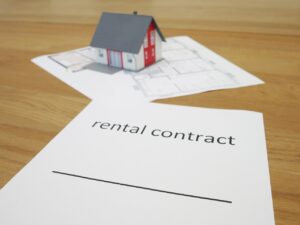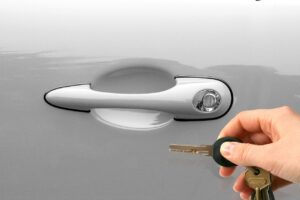 What Happens to Your Lease Agreements in Chapter 13 Bankruptcy?
What Happens to Your Lease Agreements in Chapter 13 Bankruptcy?
If you’ve filed for Chapter 13 bankruptcy and have an active lease for your home or car, you might be wondering what will happen to that lease in Chapter 13 bankruptcy.
The good news is Chapter 13 provides options for handling lease agreements. So you will have some control over how you want to proceed, and we can help.
Let’s break down how leases are treated during Chapter 13 bankruptcy and what your choices are.
How Does Chapter 13 Work?
Chapter 13 bankruptcy is a way to get back on track if you’re struggling with debt. Instead of selling off your belongings like in Chapter 7, Chapter 13 lets you set up a payment plan to pay back some or all of your debts over 3-5 years.
This plan is based on how much money you earn and what you can afford. You make one monthly payment to a court-appointed trustee, who sends the money to your creditors.
Chapter 13 also helps you catch up on missed payments for things like your house or car, so you don’t lose them. At the end of the plan, most of your remaining debts, like credit card balances, can be wiped away, giving you a fresh start.
Understanding Leases in Bankruptcy
Leases are considered executory contracts in bankruptcy. This means the contract is still active, and both you and the other party have ongoing obligations.
For example, if you’re leasing an apartment, you’re required to pay rent, and your landlord is required to provide you with a place to live. A bankruptcy doesn’t just automatically cancel that contract.
But it does offer you options on what to include. In Chapter 13 bankruptcy, you’ll need to decide whether to assume or reject the lease as part of your repayment plan.
The court will just want to make sure that whatever you decide is affordable and practical for you over the long-term. A trusted bankruptcy attorney can help you figure out your best options.
 What Does It Mean to Assume or Reject a Lease?
What Does It Mean to Assume or Reject a Lease?
Assume the Lease
If you want to keep the lease, you’ll “assume” it. This means you agree to continue making the regular payments and comply with the terms of the lease. Any past-due amounts can often be included in your Chapter 13 repayment plan, allowing you to catch up over time.
For example, if you’re behind on rent for your apartment but want to stay, you can include those overdue payments in your plan and resume making your monthly rent payments as usual.
Reject the Lease
If you decide the lease is no longer affordable or necessary, you can “reject” it. This means you’re effectively breaking the lease. Any unpaid amounts on the lease up to the rejection date are treated as unsecured debts and included in your repayment plan, alongside things like credit card debt and medical bills.
Rejection might be a good option if you’re leasing a car with payments that no longer fit your budget or if you want to move out of a rental property.
How Does Chapter 13 Protect You?
One of the biggest benefits of Chapter 13 bankruptcy is the automatic stay, which stops creditors and landlords from taking action against you while your case is pending.
If you’re behind on rent or car lease payments, this gives you time to decide whether to assume or reject the lease without the immediate threat of eviction or repossession.
Special Conside rations for Different Types of Leases
rations for Different Types of Leases
Residential Leases
If you’re leasing a home or apartment, assuming the lease can help you stay in your current residence. However, sometimes your financial situation has changed and the rent is no longer affordable for you. In that case, rejecting the lease allows you to walk away without owing the full remaining term of the lease.
Car Leases
A car lease works the same way. With a car lease, assuming the lease means you’ll keep the vehicle and continue making payments. If the payments are too high, rejecting the lease might be the better choice.
After rejecting the lease, you can consider buying a less expensive vehicle.
At our Memphis firm, we help people with these choices every day. And we can also help you plan for what the courts will want to see when we make your plan with them.
What Happens After You Reject a Lease?
If you reject a lease, you’re no longer obligated to make future payments under the agreement.
Any unpaid amounts you still have from before you filed will become part of your repayment plan and treated like other unsecured debts. This can make it easier to focus on rebuilding your finances without being tied to an unaffordable lease.
From there, you’ll want to think about your future situation. Fortunately, if you need to downsize, you can still get an apartment or car, even after a bankruptcy. Our popular free report called Life After Bankruptcy gives you all the info you need.
 Legal Help with a Lease in Chapter 13
Legal Help with a Lease in Chapter 13
Chapter 13 bankruptcy gives you the flexibility to decide what to do with your lease agreements. Whether you assume a lease to keep your home or car or reject it to free yourself from the high payments, the choice is yours.
But remember, you’ll want to make your decision based on your ability to pay. The courts will want to see you have the means to continue payments once you’re caught up. And they’ll want to know you have a really well-crafted payment plan in place. That’s where we come in.
We help our clients understand their options and make the right decision. And we make sure your payment plan has the best chance of success.
With over 40 years of experience, thousands of clients, and multiple awards for client satisfaction, we’ve become very good at protecting your interests and working with your goals.
Contact us today to get started with a free consultation, no strings attached. Just reach out online or call us at 901-327-2100.
